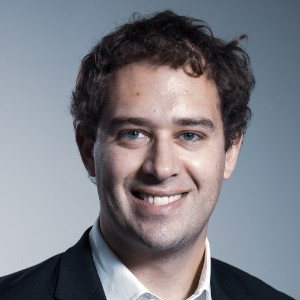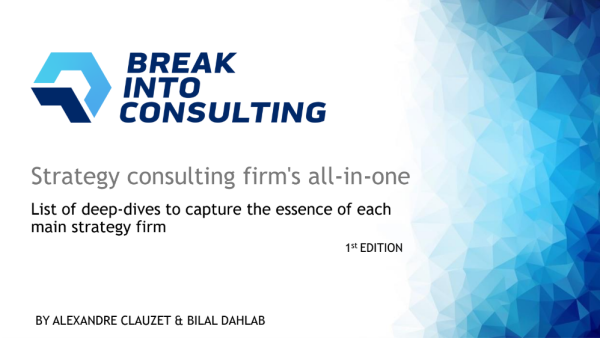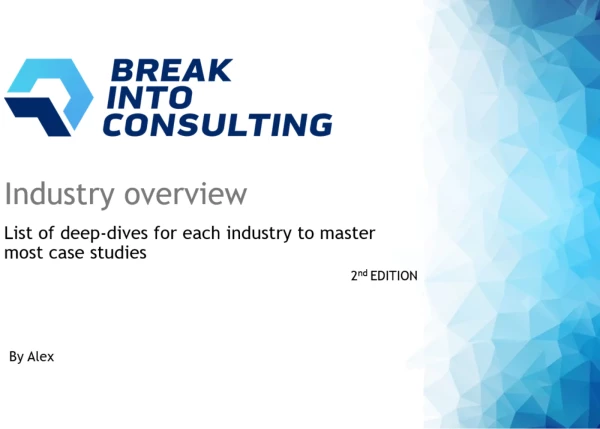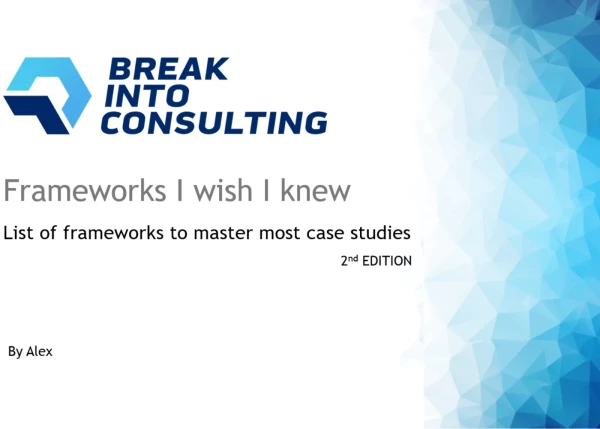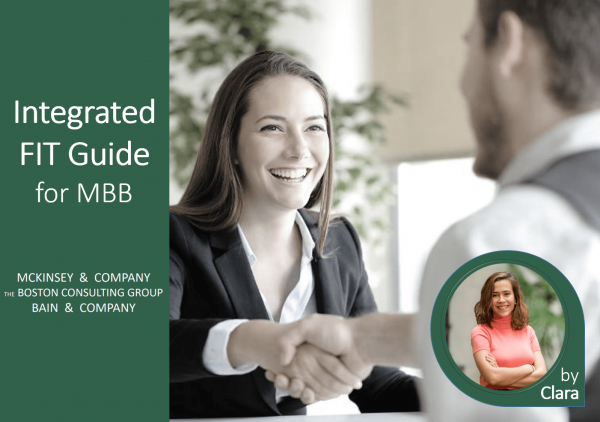Anyone have advice on the best way to prep for a second round of a MBB interview? Other than interviewing with more senior people, what types of differences will there be in terms of difficulty of case?
Get Active in Our Amazing Community of Over 451,000 Peers!
What additional prep should I do for a second round MBB interview?
Overview of answers
Hi,
In the final round, I would expect a bit more structured and demanding approach to the fit part. The partners in the last round are more experienced and they will challenge every single detail of your story. So make sure that you have a couple of backup stories. Thus:
1) Make sure that you've prepared everything: A story about yourself, motivational questions and the main FIT stories. Also, don't forget about your questions to the interviewer - you'd rather have an interesting conversation and score some point instead of a simple Q&A session
2) Then go through each story and think of the additional questions the interviewer may ask. It’s important since additional questions will take up to 50% of the interview. Try to remember the main details and facts and make sure that you know how to explain the key concepts quickly. Test your stories with your friends, ideally consultants, and ask for their feedback. There can be multiple groups of additional questions:
- The interviewer may be interested in details about the context
- He may want to check whether this was your effort or more sort of a team effort.
- “Have you faced any difficulties while implementing your solution?”- Typically an interviewer would like you to tell him how you’ve overcome those difficulties.
- Your interviewer will check how real your story is. You should be ready to provide even more granular actions, key milestones and a breakdown of potential effects.
3) Now work on 3-6 backup stories. During your interviews, you can then use these stories or adapt these stories to the additional questions your interviewer asks you.
You may be interested, why you need to prepare several stories for each question? At the end of the day, it's not that easy to come up with all of these stories. I've answered here: Repeating Fit Interview Stories
As for the cases - Partners and Directors have their own favorite cases and may want you to lead the case. The key difference:
- You ask clarifying questions in the beginning and make a structure
- You lead the case through the structure you've prepared a) asking questions and trying to identify the root-cause of the problem in the branch of your structure b) making a transition to the next branch c) proactively calculating the data and making data-driven conclusion from the data they give you d) Making a conclusion when they ask you to finish a case
It may seem to you that these 2 types of cases are different, however, the interviewer-led type is just a simplified version of the interviewee-led case. My advice is to always prepare in the interviewee-led format so that you could solve both easily.
Best
Very hard to give a 100% rule: Partners often do the final rounds, they own the company and don't want / feel the need to follow "the rules". Of my 3 final round interviews at BCG, I've had a case and a half in total; the very last interview (he is now a Senior Partner) was a completely open discussion, on a variety of topics.
Having said that, how can you prepare?
1. Obviously, keep your case cracking sharp. If you get a case, you will be expected to do it (very) well. Like everyone, I have heard cases would be much harder, but that has not been my personal experience - or that of many of my clients
2. Same for the math & market sizing stuff
3. Comparatively most important though, prepare the fit. Interviewers will ask themselves "can I put Candidate in front of my senior client? how about in front of the client's low level analyst? Will Candidate make me look good? Would candidate be a fit in my team, in my company? Would I want to spend time with Candidate?"
At this point, MBB basically knows you can do the job. Now you need to prove that you are the better choice of everyone who comes back for a final round. Good luck!
I agree with the other experts and would add one additional point: 2nd round interviews often feel a bit more unstructured, as partners typically don't come into the room with a printed set of hand-outs that you are going through. I've elaborated a bit more on this in my response to this question:
https://www.preplounge.com/en/consulting-forum/what-to-expect-from-bain-round-2-interviews-3303
Dear A!
-
Review in detail your personal fit stories – they will matter more than in the first two rounds. In some finals, I had almost exclusively behavioral questions
-
Work on your communication (reaction under pressure is extremely important, how to gain time when you do not have a structure ready, connect with the interviewer, etc). This is something you can do with peers or with me.
-
Prepare cases as you did for the first round. More market sizing practice may be useful to think out of the box if you get unusual questions.
In case you need help with unusual cases please feel free to PM me, I do a specific session on them (eg How would you estimate the effect of the Coronavirus on the economy in the Middle East)?
Hope this helps and speak soon,
Best,
André
Dear A,
Interviews with partners during the 2nd round interviews depend on how you performed in the 1st round. Different scenarios are possible:
- In case you performed well in the 1st round and didn’t get any advices on particular skills improvement (e.g structure, calculations etc.) Interview will be less structured: discuss variety of different topics, during which partner will assess your social skills, creativity, approach to different things to understand how you behave in front of a client and what your values are. What is more, short case is a part of such interview as well: market sizing or brainstorming.
- If a candidate lacked a particular skill, or there was a fit issue in the 1st round, then the second interview round might test specifically for that issue. Cases partners use might be similar to the first round with a push towards specific skill you lack (structuring/calculations). Partners will ask more analytical questions and the business cases will be more detailed: for example more deep-dives in a structure. Furthermore, partners might use cases from their personal experience, as they are owners.
Hope this was helpful.
All the best,
Egor
Hi,
To make it simple, the expectations increase as you progress in the process.
The dimension evaluated remains the same, but we can say that senior people will pay more attention to :
- Structuring : in both case study and fit interview, you need to demonstrate your ability to structure your communication and keep it on track and easy to follow. Avoid saying right away everything coming to you mind (except for brainstorming)
- Business sens : it's likely that you'll have to build logical thinking quickly and therefore need to show you ability in back of the enveloppe approach to quickly offer suggestion without spending to much time
- Perspectives in the job : in a final round a partner is likely to ask about the industries you have interest in etc.
Best
Benjamin


